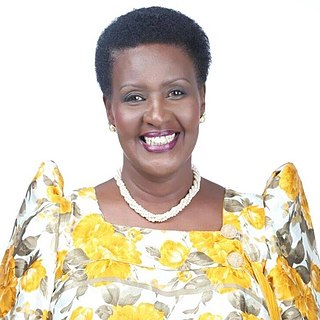
A customs union is generally defined as a type of trade bloc which is composed of a free trade area with a common external tariff.

Non-tariff barriers to trade are trade barriers that restrict imports or exports of goods or services through mechanisms other than the simple imposition of tariffs.
A common external tariff(CET) must be introduced when a group of countries forms a customs union. The same customs duties, import quotas, preferences or other non-tariff barriers to trade apply to all goods entering the area, regardless of which country within the area they are entering. It is designed to end re-exportation; but it may also inhibit imports from countries outside the customs union and thereby diminish consumer choice and support protectionism of industries based within the customs union. The common external tariff is a mild form of economic union but may lead to further types of economic integration. In addition to having the same customs duties, the countries may have other common trade policies, such as having the same quotas, preferences or other non-tariff trade regulations apply to all goods entering the area, regardless of which country, within the area, they are entering.

Economic integration is the unification of economic policies between different states, through the partial or full abolition of tariff and non-tariff restrictions on trade.

The Council of Arab Economic Unity (CAEU) was founded by Egypt, Iraq, Jordan, Kuwait, Libya, Mauritania, Palestine, Saudi Arabia, Sudan, Tunisia, Syria, United Arab Emirates and Yemen on May 30, 1964, following an agreement in 1957 by the Economic Council of the Arab League.

The African Economic Community (AEC) is an organization of African Union states establishing grounds for mutual economic development among the majority of African states. The stated goals of the organization include the creation of free trade areas, customs unions, a single market, a central bank, and a common currency thus establishing an economic and monetary union.

The African Free Trade Zone (AFTZ) is a free trade zone announced at the EAC-SADC-COMESA Summit on 22 October 2008 by the heads of Southern African Development Community (SADC), the Common Market for Eastern and Southern Africa (COMESA) and the East African Community (EAC). The African Free Trade Zone is also referred to as the African Free Trade Area in some official documents and press releases.

Amelia Anne Kyambadde is a Ugandan Entrepreneur, Philanthropist, Politician, Eco-tourism enthusiast, Real Estate Developer, Trade Consultant and an advocate for the empowerment of women. She served as Minister for Trade, Industry and Cooperatives and a Member of Parliament for Mawokota North County from 2011 to 2021. Since July 2021, Amelia Kyambadde has been serving as the Senior Presidential Advisor on Industry to the President of the Republic of Uganda. She sits on the boards of several private companies including Fresh Handling Ltd – a major exporter of fresh commodities, Hexagon Global Ltd – an apex body for trading and real estate, Ensulo Haven (U) Ltd – an aquaculture and tourism project. She is a woman of integrity and valor; interpersonal skills; Pan-Africanist and a strong advocate for vulnerable groups/ women's rights.

Since the end of apartheid, foreign trade in South Africa has increased, following the lifting of several sanctions and boycotts which were imposed as a means of ending apartheid.

The Juncker Commission was the European Commission in office from 1 November 2014 to 30 November 2019. Its president was Jean-Claude Juncker, who presided over 27 other commissioners. In July 2014, Juncker was officially elected to succeed José Manuel Barroso, who completed his second five-year term in that year.

Vera Songwe is an economist and banking executive from Cameroon who has worked for the World Bank since 1998, and in 2015 became Western and Central Africa's regional director for the International Finance Corporation. She is the first woman to head the U.N.s Economic Commission for Africa (ECA) at the level of Under Secretary-General.

Olajumoke Omoniyi Oduwole is a Nigerian jurist and academic. She was appointed the Prince Claus Chair holder from 2013–2015.

Water in Africa is an important issue encompassing the sources, distribution and economic uses of the water resources on the continent. Overall, Africa has about 9% of the world's fresh water resources and 16% of the world's population. Among its rivers are the Congo, Nile, Zambezi, Niger and Lake Victoria, considered the world’s second largest lake. Yet the continent is the second driest in the world, with millions of Africans still suffering from water shortages throughout the year.

The African Continental Free Trade Area (AfCFTA) is a free trade area encompassing most of Africa. It was established in 2018 by the African Continental Free Trade Agreement, which has 43 parties and another 11 signatories, making it the largest free-trade area by number of member states, after the World Trade Organization, and the largest in population and geographic size, spanning 1.3 billion people across the world's second largest continent.

Countries of the East African Community (EAC) include the Democratic Republic of the Congo, Kenya, Tanzania, Burundi, Uganda, Rwanda, and South Sudan. These nations fall below par in different measures of economic activities such as GDP per capita, population below the poverty line, unemployment, and trade. The East African Community has made an effort to bolster trade through enhancing co-operation economically, socially, and politically within the member nations. "The aim of EAC is to gradually establish among themselves a Customs Union, a Common Market, a Monetary Union, and ultimately a Political Federation of the East African States." East African Community countries also have active trade to other parts of the world, like the European Union. Each country is a part of the World Trade Organization except for South Sudan who remains out of this conglomeration. As of 2014, these six countries have a combined GDP of $159.5 billion, GDP per capita of $918, total population of 168.5 million, total import $40.2 billion, and total export $13.6 billion. These countries become much stronger as a part of the community as they become a larger market for trade outside of the bloc. Also, the bloc allows for free trade between the member countries helping not only producers who have more options to sell their product but also consumers who have more cheap goods. It is always important for fish to be in fresh water lakes
Agenda 2063 is a set of initiatives proposed and currently under implementation by the African Union. It was adopted on 31 January 2015 at the 24th Ordinary Assembly of the Heads of State and Governments of the African Union in Addis Ababa. The call for such an agenda was first made by the 21st Ordinary Assembly on 26 May 2013, 50 years after the foundation of the Organisation of African Unity, as a plan for the next 50 years. The stated goals of the Agenda are economic development, political integration, improvements in democracy and justice, establishment of security and peace on the entire African continent, strengthening of cultural identity through an "African renaissance" and pan-African ideals, gender equality, and political independence from foreign powers.
Wamkele Mene is the Secretary General of the African Continental Free Trade Area (AfCFTA) Secretariat. In February 2020, he was elected as the first Secretary General of the African Continental Free Trade Area Secretariat.

Dorothy (Ng’ambi) Tembo is a Zambian economist and trade and development expert. She is the deputy executive director of the International Trade Centre (ITC), a joint agency of the United Nations and the World Trade Organization.

Peter Mutuku Mathuki, in Masinga Machakos.
The Climate and trade nexus in Africa is a concept that refers to the intersection between climate and international trade In the context of Africa's economic development. It is the subject of a field of study that seeks to outline an economy-based approach towards climate change adaptation and mitigation. In this sense, it explores how trade and climate policies connect with important outcomes, such as the continent's resilient and low-carbon economic growth. Globally, trade is a major factor in GHG emissions. Trade-related greenhouse gas emissions are influenced by energy efficiency via the technique impact, greenhouse gas production intensity via the composition effect, and scale effect. Emissions related to international freight movement underpin each consequence.













